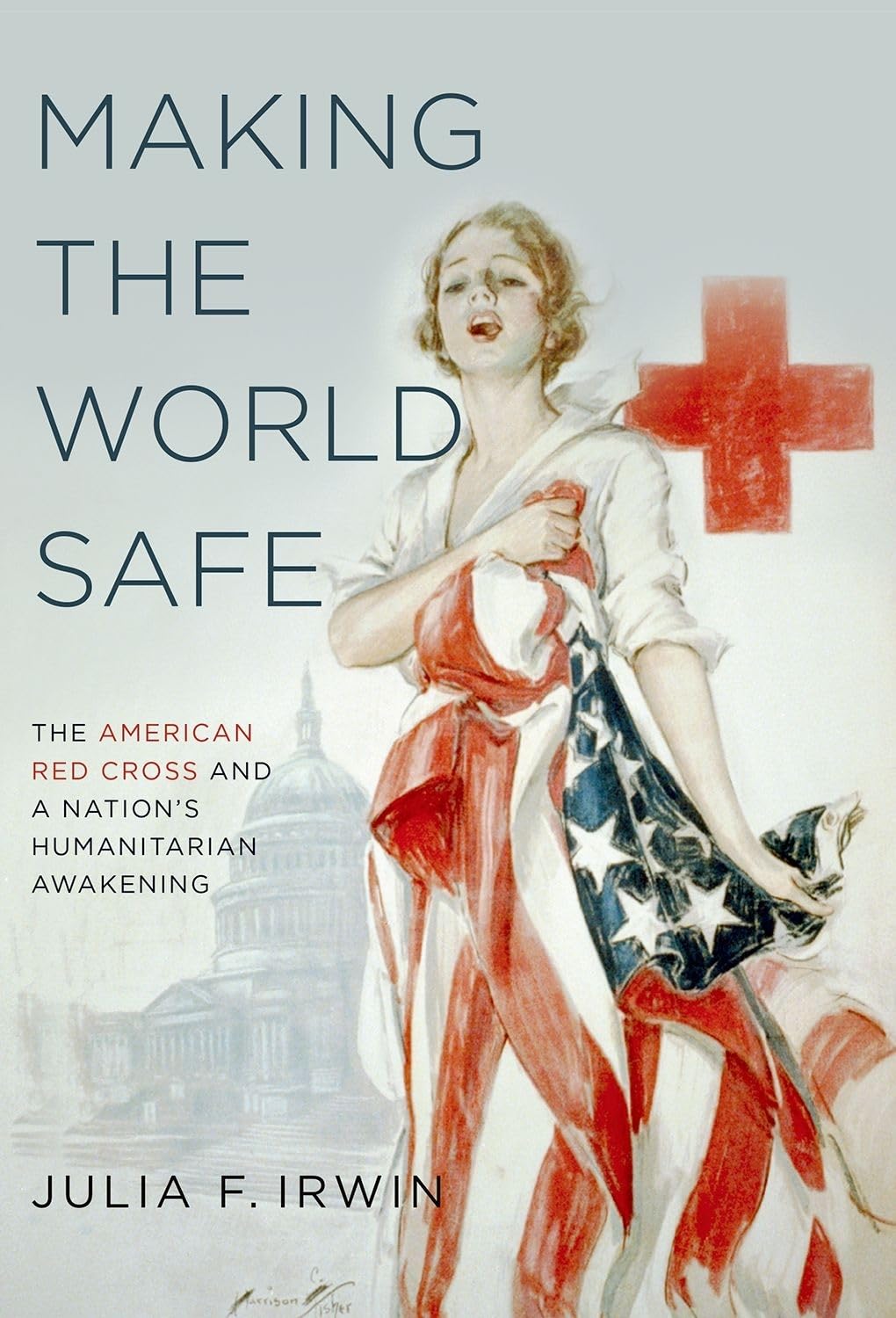Customer Services


Making the World Safe: The American Red Cross and a Nation's Humanitarian Awakening
H**E
American Humanitarianism
Julia Irwin has written a fabulous book about the story of the making of American humanitarianism - and she came to UW-Green Bay this week and delivered a wonderful talk that raised good questions about gender and race and how we relate to peoples beyond our borders. If you want to understand America in the World read Making the World Safe.
O**Y
very nice
we are the birthplace of Clara Barton, so this is appropriate for our collection it will be great to have here, thanks
J**Y
Excellent! Very well written.
This is an exceptional book. Historian Julia Irwin examines the emergence of the American “humanitarian sensibility,” an ideological structure that was exemplified by the nascent American Red Cross (ARC), an organization created by influential humanitarian Clara Barton in 1881. Irwin provides a biographical sketch of Barton, who gained her humanitarian awareness within the context of the American Civil War, perhaps one of greatest humanitarian crisis in American history. The first humanitarian organization in the United States was the Sanitary Commission. Created in 1861, the Commission aided soldiers that fought in the Civil War and their civilian families. Moving into the early twentieth century, Irwin argues that the American political leaders defined their role in the world through the lens of humanitarianism during and after the First World War. This new ‘sensibility’ held philosophical roots in the Enlightenment, which aimed at rational and scientific progress, while spiritual humanitarianism also held Evangelical underpinnings which transcended political boundaries.Irwin traces the ways in which the ARC used the U.S. government to achieve its international vision, while at the same time, the ARC served a strategic goal of the U.S. government, framing the expanding influence of the United States in the world through this humanitarian image. While Evangelical Gospel held an important underpinning in the emergence of the humanitarian sensibility, Irwin argues that the ARC was supported by the Rockefeller Foundation, J.P. Morgan, and the Busch families, and led by a cohort of individuals that defined humanitarianism through material progress, a pattern which “reflects the beginnings of a trend toward the secularization of American missionary ideology” (p. 9). The idea that Americans not only had the responsibility, but a unique ability to move society toward civilization, was an important undercurrent in making the humanitarian sensibility an international movement. The greater role of ‘specialists’ and social scientist, played an influential role in the promoting ‘enlightened’ public policy and creating an environment that mirrored their progressive ideology.
Trustpilot
1 month ago
2 weeks ago